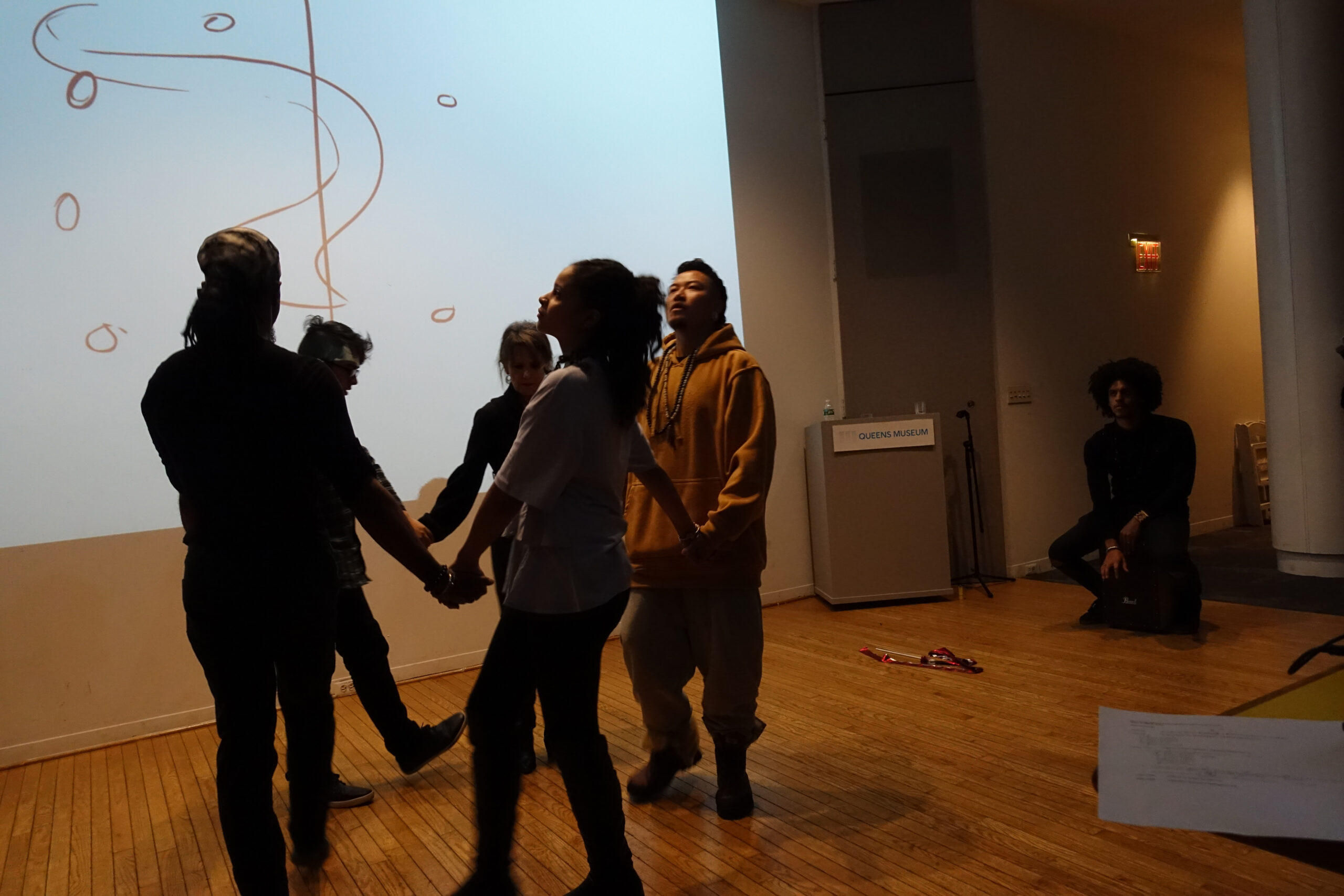
On December 3, 2017, Kyoo Lee and Lee Ann Brown, together known as Q Lee Ann or Q Lee B, gathered dozens of forward thinkers at the Queens Museum. A prequel event entitled “QueensEnglishToday.mp3” took place a few days prior at the CUNY Graduate Center, centered on the metamorphosis of “Queens English,” in its many valences. Organized by Kyoo Lee, these events are the beginning of multiple trans-disciplinary experiments that will ultimately create an archive across a mobile performative platform entitled “mp3.”
At the Queens Museum, Q Lee Ann began by encouraging active listening. They explained that the “QueensEnglish” event is framed around “poetry, philosophy and performativity”—three of many key words I jotted down during performances from students and faculty from St. John’s University and the CUNY Graduate Center. Performers summoned attendees with poetry and prose, diverse rhythm and dialect, accents and textures. An energetic performance by Cosmic Myth Fits infused movement, language, music, and message while Sophie Bell, a faculty member at St. John’s University, read a student essay. The student explained how the dominance of English and American social norms separated her from her culture, especially in learning environments. She was unable to fully embrace her identity because educators treated it as a handicap.
There was an energy that filled the auditorium as language lived and voices bounced off the walls. The performances cultivated an enlightening discussion about the lack of support for multilingual students in education. Like Bell’s student, many others have been taught that expressing ideas coherently in English is the only way to succeed in academia, which drifts the focus of education to mastery of content, rather than application. English has been built around standards of proper usage that have traveled from England, hence the title of the event. This opened the discussion to personal experiences including being pulled away swiftly from one’s own culture and speakers of other languages being forced to relearn their native tongue in the same environments that rejected their language.
After challenging the idea that knowledge is directly related to mastery of English, the conversation transitioned to challenging the systems that have instilled this idea. The root of this logic unveiled oppressive ideals ingrained in American cultural and societal norms around the English language. As we unpacked these oppressive ideals, the discussion moved toward America as a land of immigrants who enrich English, creating a language that is polyphonic and transformative. To reduce English to a standard of communicating encourages conformity as a prerequisite for success. Students learn that native languages are unacceptable in learning environments and after conforming are often still ostracized systematically. Many attendees chimed in with frustration, empathy, an array of perspectives and ideas to combat these ongoing issues in education.
“The mind considers self, then has knowledge of other people,” another collection of words I wrote down during the event. America’s inherent systems, including its use of language, have remained in the interest of its founders and colonizers, yet to acknowledge how those that they oppress have enriched and transformed the English language. The array of performances and readings illustrated language as a substance of transmutation that is evolving daily. After attending the Queens English event, some would acknowledge language as a living organism all of us nourish.
–Danielle Rouse